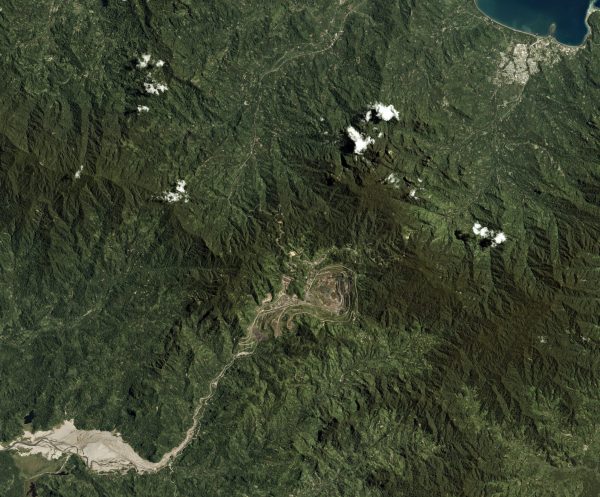To many, the referendum is the culmination of a more than 20-year long peace process. It asks Bougainvilleans to choose between ‘independence’ and ‘greater autonomy’. The referendum is not binding, but it will lead to negotiations. A negotiated position will then be put to a vote in the PNG National Parliament.
Much has been written about the prospects for an independent Bougainville and its implications for the region more broadly. Less has been written about the implications of the referendum for PNG as a whole.
There is an almost complete lack of preparation in PNG for either Bougainvillean independence or enhanced autonomy. The PNG government has approached the issue of Bougainvillean independence as if it were to only affect Bougainville. One should not mistake this for a view that the fate of Bougainville is for Bougainvilleans to decide, let alone some latent desire to see Bougainville leave. There simply has not been enough forethought put into the issue one way or another.
What little consideration has been given to the referendum relates to the precedent Bougainvillean independence would set for other provinces. Bougainville might inspire PNG’s provinces to demand ‘greater autonomy’ of their own — or independence. Distrust of the national government is widespread throughout PNG, as is resentment over the allocation of resources and burdens between provinces.
PNG’s leaders and some Australians may have convinced themselves that by favouring the continued integration of Bougainville within PNG, they will have prevented the first domino from falling. This is the wrong metaphor for the situation. The provinces of PNG are not equal dominoes laid out on a flat surface. There are dominoes here and there, barely standing on an uneven and unstable foundation. It is not certain they would topple each other over, but they certainly might fall.
People in Enga, New Ireland, East and West New Britain — among other provinces with ambitions toward autonomy — do not need the example of an independent Bougainville to demonstrate that the national government is a corrupt and incompetent mess. There are very serious sources of instability throughout the country, and most of these have nothing to do with the status of Bougainville.
The destabilisation of the entire nation state is the problem in PNG. Gross incompetence, the absence of any sort of serious development project for the country and rampant corruption are what stimulate the discontent seen in many provinces.
A desire to leave what is perceived as a sinking ship is one of the most powerful drivers for independence in Bougainville — an argument that has won for the independence position moderates who were otherwise unswayed by nationalist feelings.
These forces will still be there whether or not Bougainville is independent. But if Bougainville remains in PNG, perhaps under some kind of partial sovereignty agreement, other provinces will have a model to aspire to — a pathway to acquiring rights. This is what happened in 1975 when Bougainville declared independence, setting off a crisis that was resolved by greatly strengthening the role of provinces everywhere in the country.
There are areas in PNG — notably the Southern Highlands and Hela zones from which much of the power elite of the current administration is drawn — where chronic violence claims at least as many lives year-on-year as the fighting in Bougainville did. The degree of neglect towards the provincial hinterlands in PNG is in some places almost as extreme as the blockade experienced by Bougainvilleans in the 1990s, whether due to political reasons or simple ineptitude.
Bougainville is an outlier within PNG partly because there is a largely successful effort to resolve civil conflict and disarm. This effort, like everything else about Bougainville in the context of PNG, has been treated as an exception. Few lessons, if any, have been taken back to the mainland. As a result, nationalist Bougainvilleans feel strengthened in their resolve and dismissive of PNG’s critiques of their readiness for independence. They have achieved peacebuilding aims that the national government has not been able to.
It is understandable that PNG strives to contain the exceptions made for Bougainville. It is an attempt to render the autonomy arrangements as inextricably linked to the region’s unique and bloody history. But the effect of this exception is paradoxical — it leads to a further divergence between Bougainville and the rest of the country.
Acknowledging that Bougainvillean secession is not only an issue for Bougainville does not come without sacrifices. It is, and always was, an issue for all PNG. Another path may have been possible — one that recognised that the continued integration of Bougainville into a national polity would demand changes to that polity, not only peacebuilding in Bougainville. Now, at the eleventh hour, there is still no sign of recognition of this by PNG’s elites.
Thiago Cintra Oppermann is a research fellow in the Department of Pacific Affairs at the College of Asia and the Pacific, The Australian National University.

